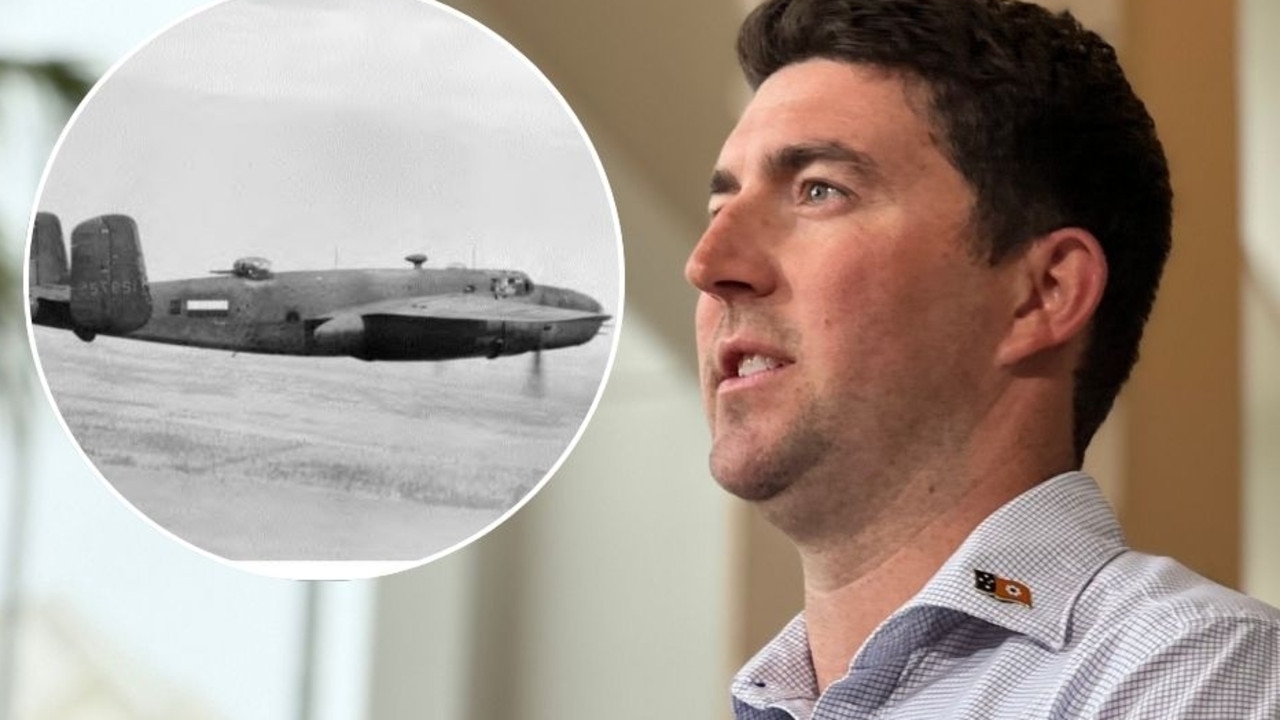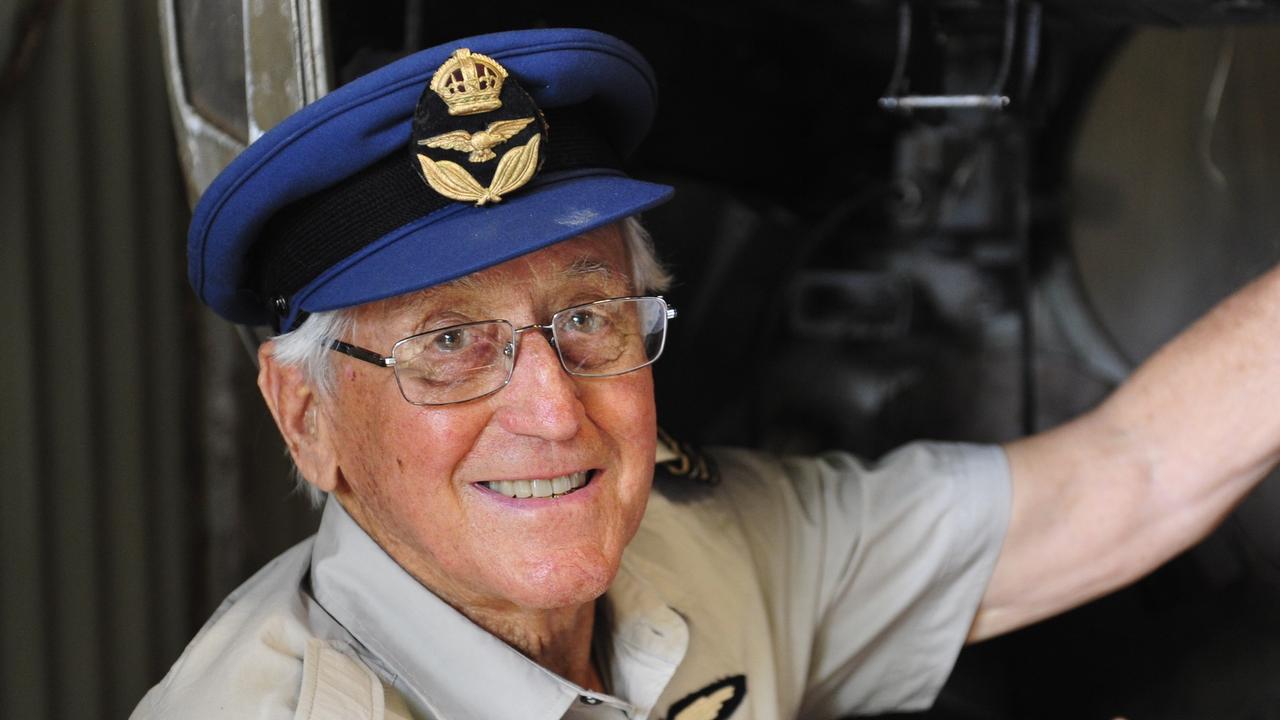A ‘traumatic experience’: Thousands commemorate Bombing of Darwin 79 years on
WITH the roar of fighter jets, the crack of machine gun fire and plumes of smoke filling the air, several thousand people yesterday had a taste of what it must have been like when the first Japanese bombs fell on Darwin – and war first came to Australia – on February 19, 1942.
WITH the roar of fighter jets, the crack of machine gun fire and plumes of smoke filling the air, several thousand people yesterday had a taste of what it must have been like when the first Japanese bombs fell on Darwin – and war first came to Australia – on February 19, 1942.
Today marks 79 years since the Bombing of Darwin, when during World War II 242 Japanese aircraft dropped bombs on the NT capital in a pair of surprise raids that killed up to 250 people.
The Top End would continue to come under attack for the next 21 months.
At the annual commemorative service at the Darwin Cenotaph on Friday, some 2000-3000 people gathered to remember and pay their respects.
At exactly 9.58am – the same time the first bombs hit Darwin on February 19, 1942 – an air raid siren rang out, signalling the start of a re-enactment of the events of that day.

MORE TOP NEWS
NT company fined after apprentice dies from electrocution at worksite
Batchelor Institute in formal investigation of ‘internal complaints’
Facebook news purge deletes page of key Aboriginal healthcare provider
About a dozen troops sprang into action, firing machine guns and cannons off the cliffs of the Darwin Esplanade as smoke gathered around them.
As the re-enactment came to a close, a RAAF F/A-18A/B Hornet flew past Darwin city from the south east at a speed of 850km/h.
After a loop of the capital, it returned to Darwin from the north west, bringing a conclusion to commemorations, before returning to RAAF Base Tindal.
Later, dignitaries and VIPS lay wreaths at the Cenotaph, before the Last Post rang out and everyone bowed their heads for a minute’s silence.

Mervyn Ey, 99, was the sole surviving veteran of the Bombing of Darwin who was able to attend the service this year, travelling with family from Adelaide to make the event.
He was just 20 years old and stationed at Nightcliff as a private with the infantry regiment when the first bombs fell on the city.
“There was a big variety of planes – there were fighters, there were dive bombers and there were big bombers,” he recalled.
“For us young blokes, it was a very traumatic experience.
“We didn’t expect war to be like that.”
He said he felt “very lucky” to be able to attend the service.

Mr Ey’s granddaughter Melissa Mahoney said witnessing the re-enactment had given her a better understanding of what her grandfather must have gone through 79 years ago.
“It’s the first time I’ve been here, and it makes it feel real,” she said.
“It’s nothing compared to what he would have felt being here, but it’s very emotional.”
The two other surviving veterans of the Bombing of Darwin, 100-year-old Brian Winspear and 98-year-old Basil Stahl, couldn’t make it to the service this year but have told the NT News they’re determined to attend next year.
Brigadier Ash Collingburn, Commander First Brigade and Senior Australian Defence Force (ADF) Officer in the NT, said the Bombing of Darwin was one of the most important events in Australian defence history.

(It) was the biggest single attack on Australian soil by a foreign power,” he said.
“The important lessons from it were that we are vulnerable, we can be attacked, so we need to be prepared for that.”
Earlier this morning, about 150 people gathered at the Esplanade to commemorate the 91 crew members who lost their lives on-board US navy vessel the USS Peary, which was sunk by bombs in Darwin Harbour.
Australian American Association of the NT president Bradly Torgan said the service recognised the important role the US had and continued to play in Darwin.
“It’s a recognition and an understanding of US involvement here in the Top End, even at that early stage of World War II, and the loss of American life in foreign waters, or on foreign soil, is important to us,” he said.
“To me as an American living here, as well as to the association, we think it’s important to commemorate them as part of the larger day of remembrance for the Bombing of Darwin.”

HOT NEW DEAL: Read everything for 28 days for just $1
This year’s Bombing of Darwin service was smaller than usual, with a lot of regular attendees from interstate or overseas prevented from flying in due to COVID-19 travel restrictions.


